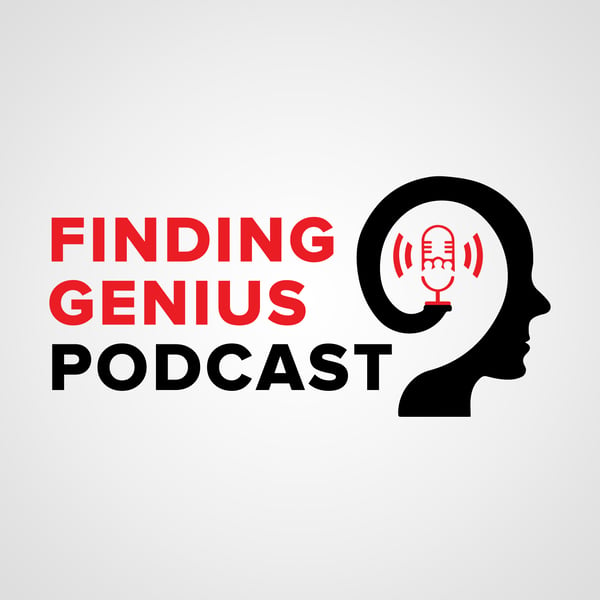Could the Ketogenic Diet Impact Every Hallmark of Cancer?
Finding Genius Podcast
Richard Jacobs
4.4 • 1K Ratings
🗓️ 11 March 2021
⏱️ 39 minutes
🧾️ Download transcript
Summary
Could a simple diet change make cancer therapies more effective, thereby helping people fight cancer and extend their lives? The evidence seems to suggest that it might.
Tune in to discover:
- Whether the ketogenic diet can slow DNA repair in cancer cells, and/or increase the anti-tumor immune response
- What might be different about cancer cells that are resistant to cancer therapies versus those that are killed by cancer therapies
- How the ketogenic diet seems to reduce the migration and invasion of cancer cells, and which model shows this the best
Adrienne Scheck is Senior Research Scientist at the Institute of Molecular Medicine at Phoenix Children’s Research Institute, and she's studying how the ketogenic diet impacts brain tumor therapies, namely radiation and chemotherapy.
Past studies have found that the ketogenic diet makes these therapies more effective, and that even when used alone, seems to reduce tumor cell growth. Based on experiments using mouse models and cells in culture, normal cells are not affected by the ketogenic diet in the same way that cancer cells are affected, meaning that normal cells aren’t at risk of being damaged or killed.
Why is this the case? The original thought was that this is because the ketogenic diet reduces the intake of glucose, therefore reducing the amount of “food” that cancer cells thrive off of. However, Scheck and many other researchers are learning that the ketogenic diet affects nearly every hallmark of cancer that exists.
Scheck and her team are trying to determine what is different about cancer cells that show resistance to cancer therapies, and cancer cells that are killed by cancer therapies.
In the process of discussing this work, Scheck talks about the heterogeneity of tumors, the challenges of studying and finding effective chemotherapies for glioblastoma, what makes brain tumors particularly dangerous, how normal brain cells versus cancer cells respond to the ketogenic diet, how individuals differ in terms of reaching a state of ketosis, the near-future role and benefit of metabologenomics in the cancer arena, and much more.
Tune in for all the details.
Episode also available on Apple Podcasts: apple.co/30PvU9C
Transcript
Click on a timestamp to play from that location
| 0:00.0 | Forget frequently as questions. |
| 0:02.0 | Common sense, common knowledge, or Google. |
| 0:05.0 | How about advice from a real genius? |
| 0:07.0 | 95% of people in any profession are good enough to be qualified in license. |
| 0:11.0 | 5%? |
| 0:12.0 | Go above and beyond. |
| 0:13.0 | They become very good at what they do. |
| 0:15.0 | But only 0.1% are real geniuses. |
| 0:18.0 | Richard Jacobs has made his life's mission to find them for you. |
| 0:22.0 | He hunts down and interviews geniuses in every field. |
| 0:25.0 | Sleep science, cancer, stem cells, ketogenic diets, and more. |
| 0:29.0 | Come the geniuses. |
| 0:30.0 | This is the Finding Genius Podcast. |
| 0:33.0 | The Richard Jacobs. |
| 0:36.0 | Hello, this is Richard Jacobs with the Finding Genius Podcast, |
| 0:41.0 | part of the Finding Genius Foundation. |
| 0:43.0 | I have Adrian Shek. |
| 0:44.0 | She's a senior research scientist in the Institute of Molecular Medicine |
| 0:48.0 | at Phoenix Children's Research Institute. |
| 0:50.0 | We're going to talk about metabolic therapies for brain tumors, metabolic ketosis. |
| 0:55.0 | So Adrian, thanks for coming. |
| 0:57.0 | Sure, my pleasure. |
... |
Please login to see the full transcript.
Disclaimer: The podcast and artwork embedded on this page are from Richard Jacobs, and are the property of its owner and not affiliated with or endorsed by Tapesearch.
Generated transcripts are the property of Richard Jacobs and are distributed freely under the Fair Use doctrine. Transcripts generated by Tapesearch are not guaranteed to be accurate.
Copyright © Tapesearch 2025.

